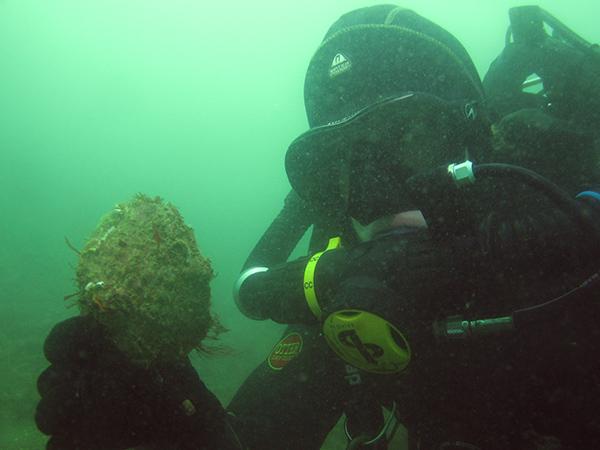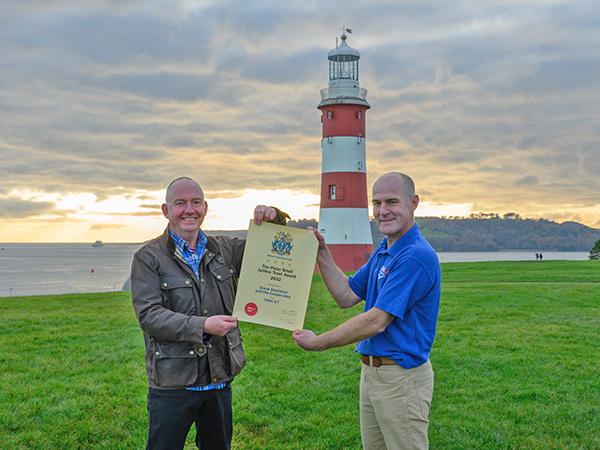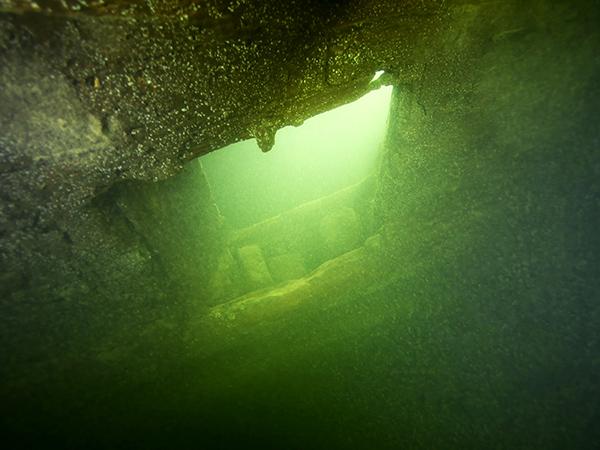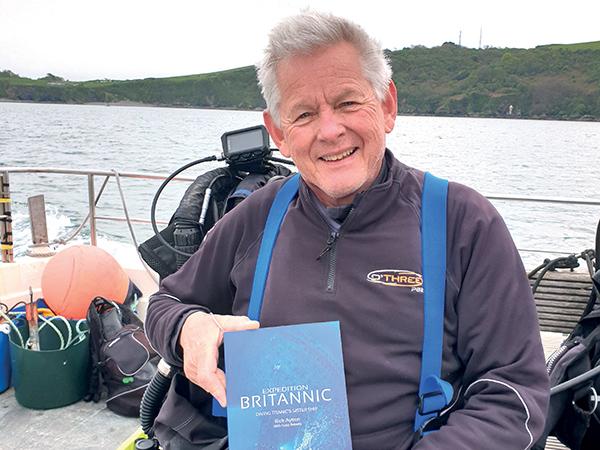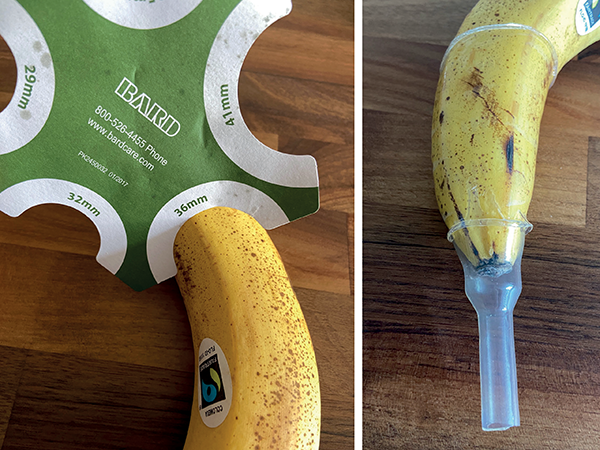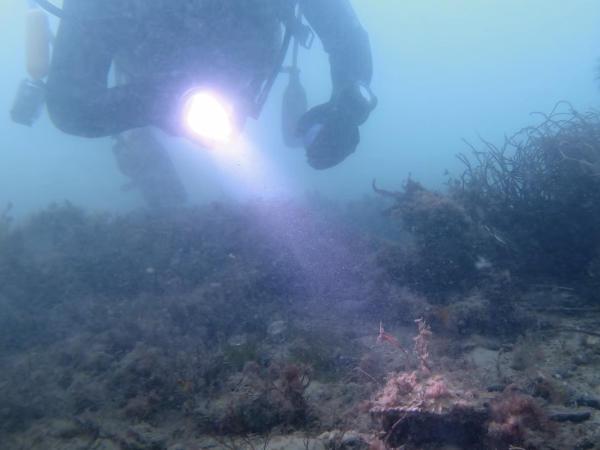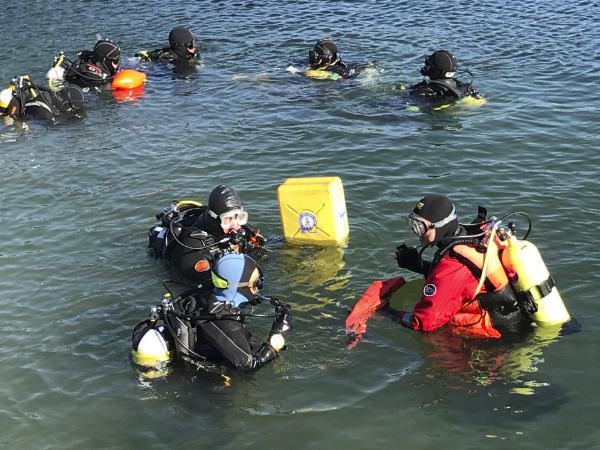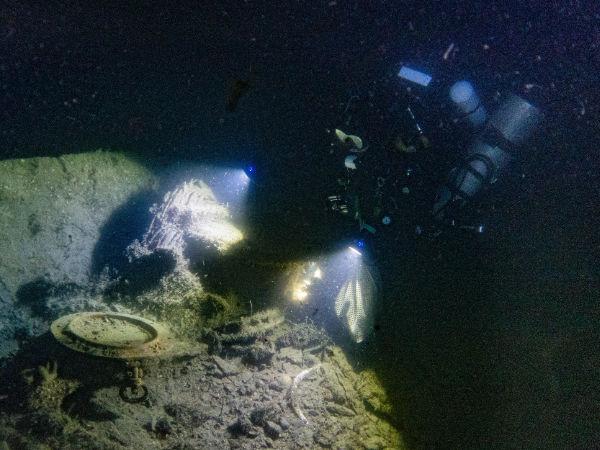About the commemorative event
The Normandy landings took place in 1944. The Allied landings on the beaches led to huge loss of life and sacrifice but they also marked the beginning of the liberation of mainland Europe from Nazism.
To commemorate the 75th anniversary of the landings in July 2019, BSAC is helping clubs participate in a very special commemorative event to dive historic war wrecks off Normandy’s beaches.
To take place between 26 July to 3 August 2019, the Normandy 75 commemorative event offers the opportunity to dive sites that form part of a key moment in our history and to mark the sacrifice and loss of those who gave much to ensure our freedom today.
When is the commemorative event taking place?
The plan is to have divers arriving on the or around the weekend of 26th July 2019 and spending five to seven days diving in Normandy. However, the exact timing of your diving can be arranged to suit your own plans. It is also planned to hold a commemorative event for those who wish to take part – exact dates and times have yet to be finalised.
How can my club participate?
There are four ways divers from your branch can participate:
- Bring your own club boat to Normandy and dive there as part of a multi-club commemorative event
- Apply for spaces on two hard boats booked by BSAC (limited space available so please register your interest as soon as possible)
- Book a hard boat, there are several boats that are usually based in the UK but can travel to Normandy
- Book diving with a French diving charter operation
Full guidance to assist with all the above options will be made available to clubs and divers expressing an interest.
Why should we participate?
This is a fantastic opportunity to dive rarely dived wrecks that are of historical importance and learn more about their role in the largest ever maritime invasion and its contribution to our world history.
If your club doesn’t do much expeditionary diving, taking part in BSAC’s Normandy landing 75th anniversary commemorative event is a great way of picking up the skills needed to dive new and adventurous sites in a place you wouldn’t normally go to. You will also benefit from the support of diving with other clubs as part of a national BSAC diving event.
And if your club regularly does expeditionary diving, by taking part in the Normandy commemorative event you can help other branches discover the excitement and fun of this adventurous style of diving and cascade expeditionary diving skills to divers in your club.
How do we get our RIB there?
On the ferry. It’s all pretty straightforward, although there are a few forms to fill in. You can bring all of your other usual kit too, including cylinders.
How experienced do we have to be?
The diving is suitable for Sports Divers who are comfortable and experienced in diving in UK-style tidal conditions and visibility. Your RIB drivers need to be BSAC Diver Cox’ns or equivalent with a VHF radio licence and your Dive Manager should be an Advanced Diver or above.
But don’t worry if you are not there yet – you have a year to get ready and your BSAC Regional team will help you if you need additional training to prepare.
How else can you help?
BSAC will try and pair up clubs that are experienced in expeditionary diving with ones that do not tend to take their boat to new locations to share knowledge and expertise.
BSAC will also try and offer a mentor for clubs that would like assistance with this kind of expeditionary diving. The aim is to create a lasting legacy for the diving event in terms of improving the capacity of participating clubs to do adventurous diving in new locations.
What if we don’t have a boat?
We have compiled a list of hard boats based on the South Coast that would be interested in taking bookings to dive with you in Normandy. You can also contact French dive centres who may be able to offer boat spaces/charters and will have the local knowledge of wrecks and tides etc. Details will be supplied when you register, click to register your interest in Normandy 75.
What about accommodation?
There is plenty of self-catering accommodation available although it is likely to book up quite early. A list will be supplied to clubs signing up.
Is air/nitrox available?
Local French diving operators may be able to offer air to divers, however, for Nitrox the French may require cylinders to have M26 valves. If your club has a portable compressor then this will be the best option.
What is the diving like?
As you would expect, diving in the area is similar to diving along the South Coast of England. Visibility in the summer months can be 6-8m+ or better in a settled period. There is a significant tidal range and whilst long slack periods can be identified on neap tides the current can be strong, especially on springs.
The Baie de Seinne is very shallow and you need to travel a reasonable distance to get some depth. Some of the wrecks are well preserved in the 20m – 35m range. The majority of wrecks will be associated with significant loss of life and it may be obvious from the wreck how the vessel was lost.
There is a wide variety of wrecks to choose from representing the huge number of vessels that took part in Operation Neptune and the complexity of the logistical support. Wrecks including Naval vessels, cargo ships, hospital ships, mine sweepers and other smaller landing craft but also tanks and other vehicles and Mulberry harbour remains can be found all along the coastline.
Many wrecks also have guns and other armament but are also a haven for marine life which can be prolific on these wrecks. There is a strict no touch/take policy under French law. In short – there’s something for everyone although sea conditions do require a fair degree of experience and competence.
How do we sign up?
Click to register your interest in Normandy 75.
Still have a question?
Please email the team at normandy75@bsac.com

